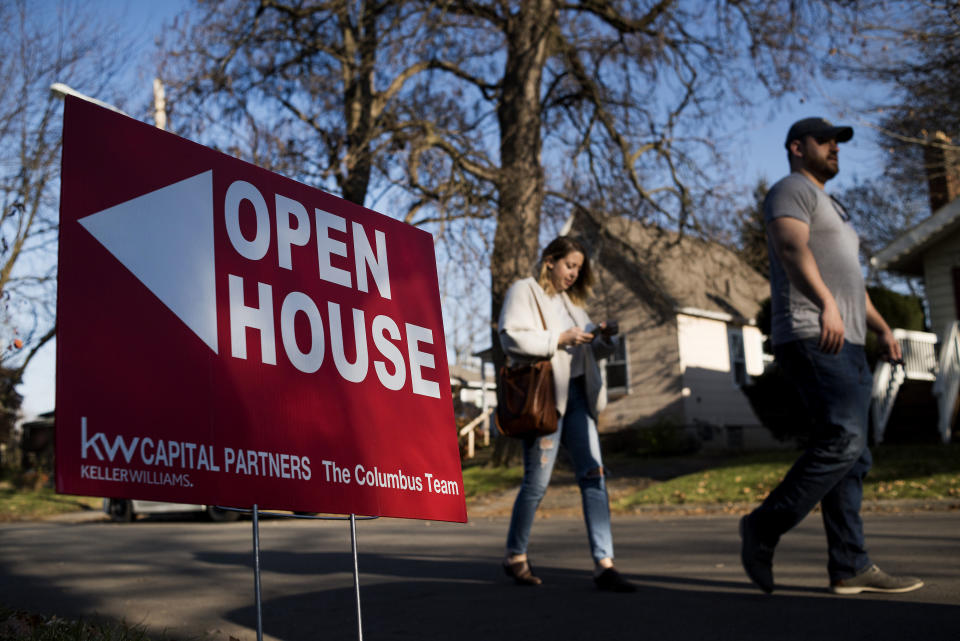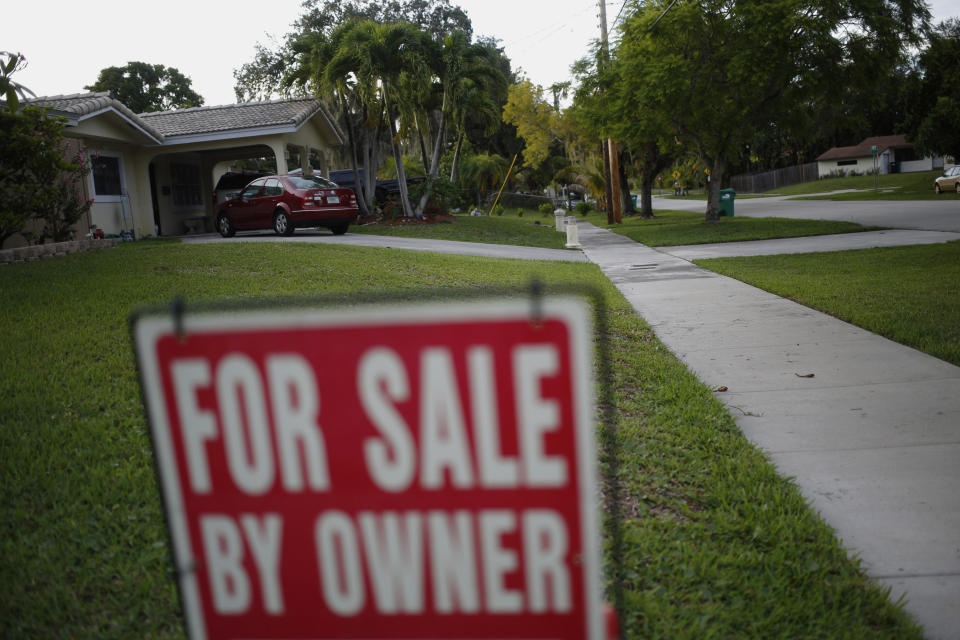A rise in high-income renters is bad news for the U.S. home sales market
More and more Americans have been renting instead of buying homes over the past decade.
According to a study from Apartment List, “during a time when the total population grew by 6% and incomes grew by 7%, the number of high-income renter households grew by a whopping 48%.”
High-income renters were defined as those earning at least $100,000 per year. There were 3.8 million high-income renters in 2008, compared to 5.7 million in 2017. The shift is hurting the home sales market in the U.S.
‘Places that have had the highest growth rates’
Igor Popov, chief economist for Apartment List, told Yahoo Finance that this was a trend he had heard about, but that he had a hard time finding numbers on “just how important this trend” was.
![Growth of high-income renters has outpaced the growth of all renters from 2008-2017. [Source: Apartment List]](https://s.yimg.com/ny/api/res/1.2/WCdEsRnRAlfubDRQDzxplA--/YXBwaWQ9aGlnaGxhbmRlcjt3PTk2MDtoPTY5Ng--/https://img.huffingtonpost.com/asset/5c7b097a240000a7044b6573.png)
“When we actually saw the data, we were pretty shocked at just how quickly this population of high-income renters was growing, relative to the broader renter population,” he said. “The thing that surprised me the most was that I had naively expected the places where you’re having the greatest growth and [most] renters to be the places that have had the highest growth rates.”
Popov was expecting to see cities like San Francisco, Seattle, and New York, but that was not the case. The study revealed that Denver, Austin, Oklahoma City, New Orleans, and Memphis experienced the biggest growth in high-income renters over the past decade.
“We found that these are the places that have seen enormous growth… mid-sized cities with strong growing economies where the rental landscape has really changed dramatically over the last 10 years,” he said.
Home prices are just too high

Lawrence Yun, chief economist for the National Association of Realtors, explained how the number of high-income renters is affecting the housing market.
People renting “means people are not buying, and that’s one of the reasons as to why home sales have been underperforming compared to economic fundamentals,” Yun told Yahoo Finance. “Right now, the homeownership rate still isn’t back up to normal, which is implying that more people are renting than usual.”
In the past year, existing home sales have dipped 8.5% and in January 2019, those numbers “declined to a seasonally adjusted annual rate of 4.94 million,” which was the slowest rate since November 2015. That decline was attributed to ongoing affordability issues.
“Rents have been rising but not as drastically as home prices,” Yun said. “So even for those with high incomes, especially the millennial generation who have good jobs and high income, they’re saying that home prices are just too expensive. That’s just one contributing factor as to why they are renting.”
Another factor, he said, is that the choices of homes available to buy “are not that exciting. We’ve had a low inventory condition. Homebuilders have been very slow on new housing stock.”

Homeownership is ‘owning part of America’
Yun explained that despite the increase of renters, there is still a “strong aspiration” among people to own a property.
“They believe that this is owning part of America,” he said. “A way to build wealth over time. There needs to be more choices available and more inventory, which means that as builders build more affordable homes, you’ll begin to see some transition of renters moving back into the ownership market.”
Yun continued: “In America, we’ve seen some wealth inequality developing. And part of that is we have a larger renter population.”
Popov noted that it’s easier now for high earners to move into the center of a city than moving out into the suburbs.
“What’s interesting about this trend is that it’s reshaping cities a bit,” he said. “Increasingly, high-income renters are moving into the urban cores and that means that cities are starting to look different, instead of having the highest earners live 10 miles out… It changes the look of the cities.”
However, this raises the question of whether or not more high-income renters moving into bigger cities could push out low-income renters. This can often lead to the phenomenon known as gentrification, an issue that has affected cities like Washington D.C., Portland, and Denver.
Yun, though, does not think this shift will have a negative impact on low-income renters.
“Currently, there’s a more competitive environment for renting, and that’s why rents are also rising,” he said. “But it’s all about housing supply. If we can have more, I believe people with the financial capacity will buy, which means that vacancy rates on apartments will be rising, and the rent growth will tame down in the future.”
Adriana Belmonte is an associate editor for Yahoo Finance. Follow her on Twitter @adrianambells.
READ MORE:
The 35-day government shutdown created long-term affordable housing concerns
Research details the 'rapid increase in homelessness' in certain U.S. cities
Home price growth ends 2018 down — drops for 9th straight month
Follow Yahoo Finance on Twitter, Facebook, Instagram, Flipboard, LinkedIn, YouTube, and reddit.
